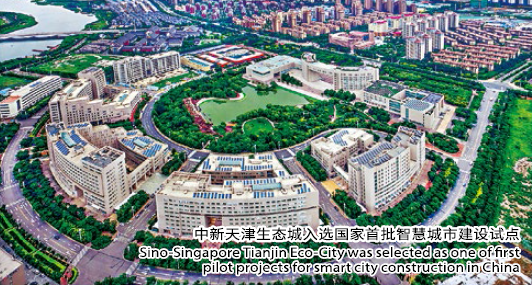

By hosting the World Intelligence Congress, Tianjin is striving to shape itself into a smart city and pursue development that is driven by intelligent technologies.
Benchmarking the standards of developed regions around the world, Tianjin has upgraded its information and communication infrastructure.
It has maintained a leading position in rolling out 5G. In 2020, more than 24,000 5G base stations were built in the city, with the number of 5G users reaching 2.55 million. Both mobile and fixed broadband download rates ranked among the top three in China for two years in a row.
The Sino-Singapore Tianjin Eco-City has been selected as a pioneer for smart city construction in China. Tianjin (Xiqing) has been approved as a national pilot zone for the "internet of cars", with the first 2.6GHz band 5G intelligent road tested in northern China.
Focusing on more than 10 key 5G application fields such as the smart construction of cities, ports, and manufacturing, Tianjin has achieved innovative results in 5G application.
Improving people's livelihoods and public services is a focus in the process of turning Tianjin into a smart city.
Smart technologies have enhanced medicine and public health. Forty tertiary hospitals and 17 secondary hospitals in the city provide smart outpatient services, multi-channel appointment registration, online payment, and information updates.
The school broadband network access rate and campus network coverage rate has reached 100 percent and students have benefited from digital technologies.
The information applications of public services have become more diversified, offering 201 public security services in 14 categories online. Services such as online business halls, mobile apps, and WeChat official account payments are widely used.

Copyright © 2024 Tianjin Municipal People's Government. All rights reserved.

Copyright © 2024 Tianjin Municipal People's Government. All rights reserved.